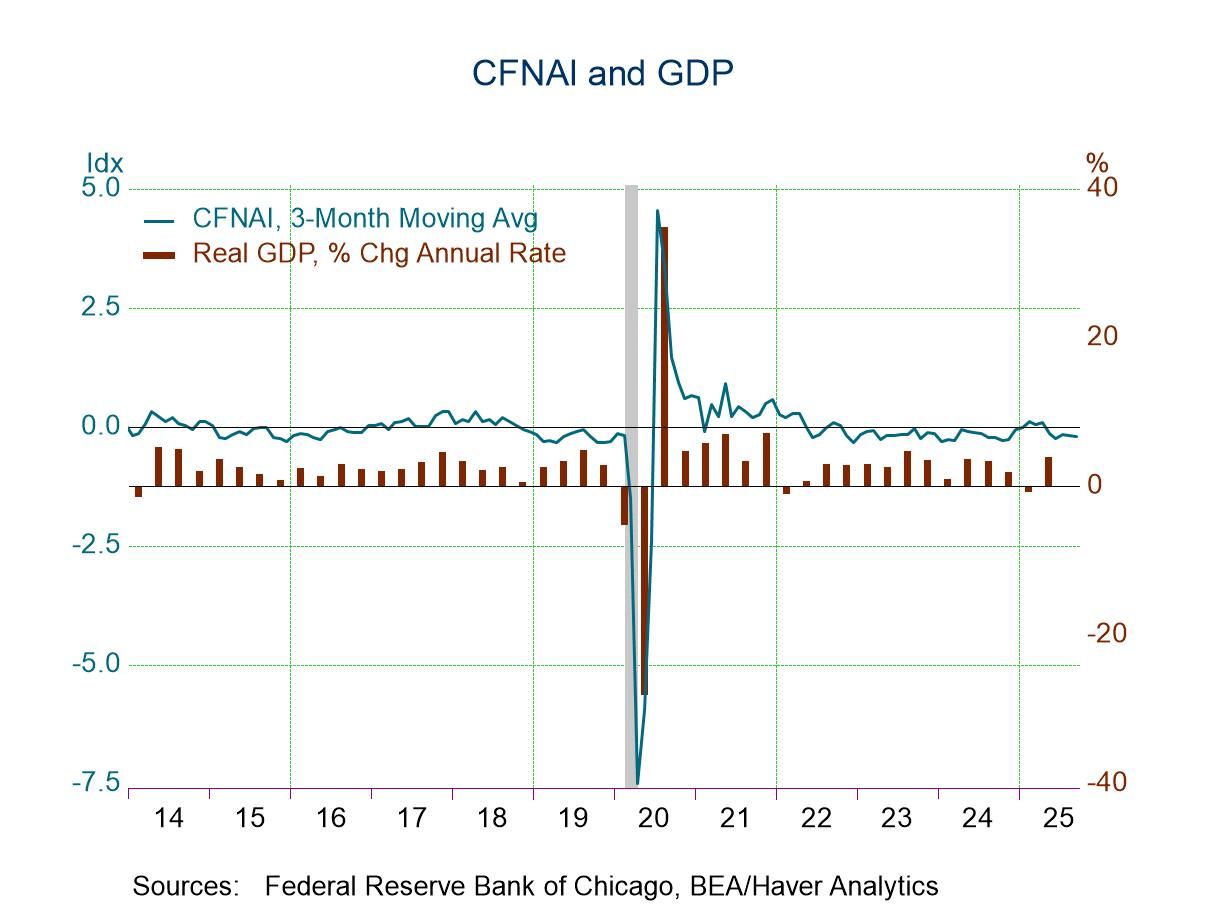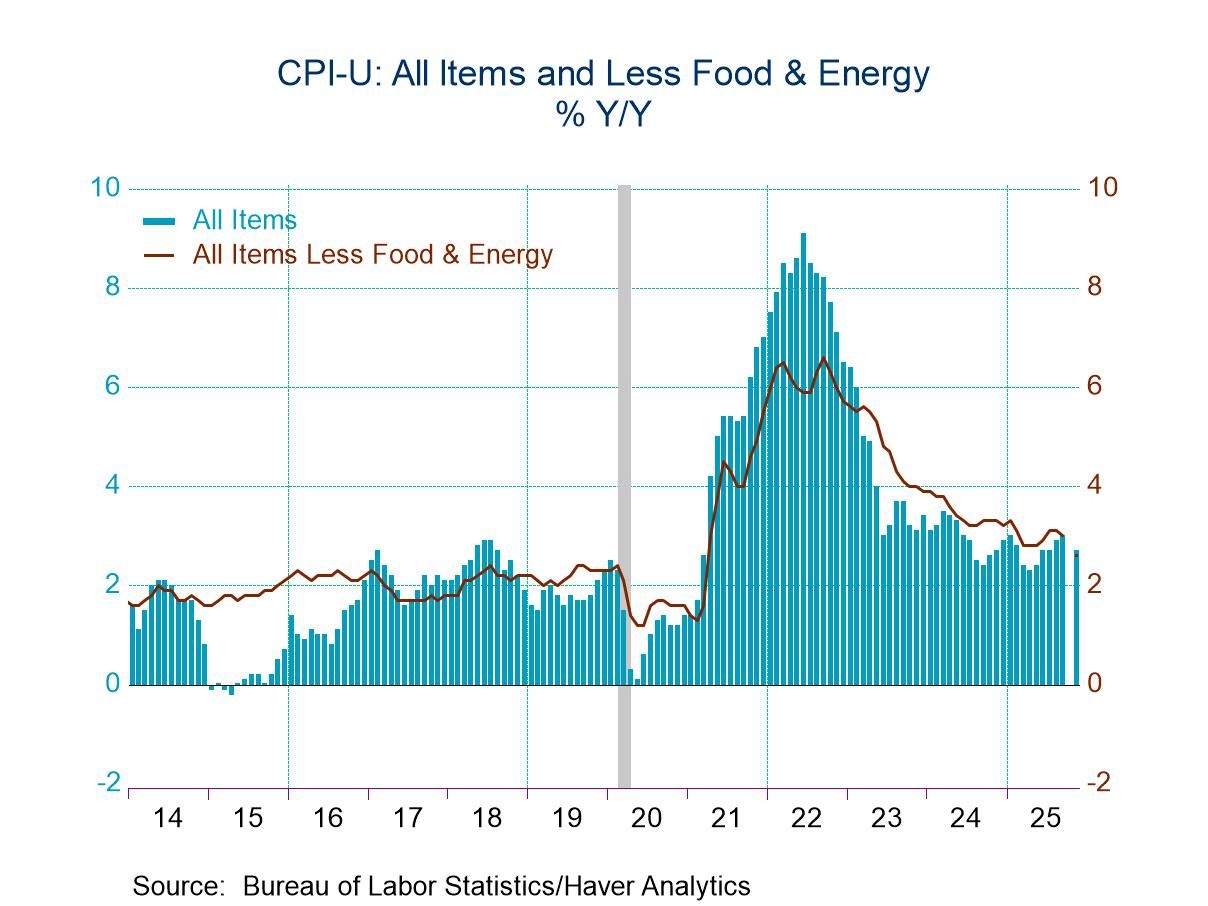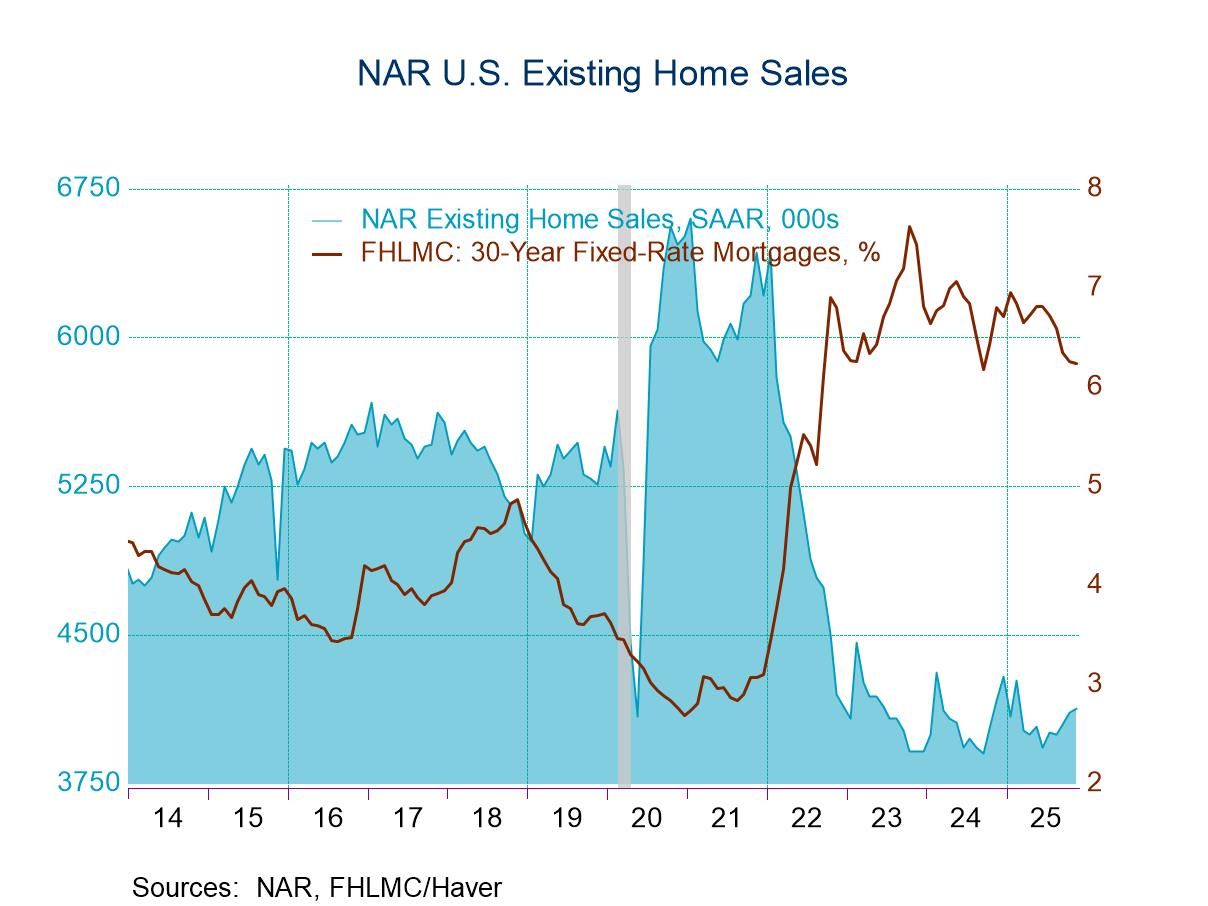 Global| Sep 15 2015
Global| Sep 15 2015ZEW Nose Dives
Summary
The ZEW expectations reading, the part of this report that gets the headline, fell to 12.1 in September from 25.0 in August, better than halving its value. ZEW expectations have dropped more than this in one month only about 8.5% of [...]
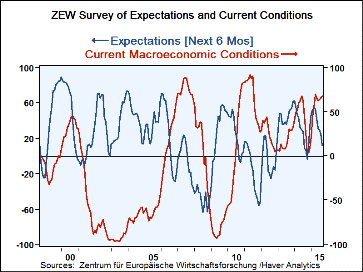 The ZEW expectations reading, the part of this report that gets the headline, fell to 12.1 in September from 25.0 in August, better than halving its value. ZEW expectations have dropped more than this in one month only about 8.5% of the time. The expectation reading level is weaker only about 10% of the time. That makes this month's reading a very depressing result. It is both weak and it is falling fast.
The ZEW expectations reading, the part of this report that gets the headline, fell to 12.1 in September from 25.0 in August, better than halving its value. ZEW expectations have dropped more than this in one month only about 8.5% of the time. The expectation reading level is weaker only about 10% of the time. That makes this month's reading a very depressing result. It is both weak and it is falling fast.
However - and significantly- the current portion of the ZEW index rose. It advanced from 65.7 in August to 67.5 in September. At that level, current conditions are stronger only about 33% (one-third) of the time. The current economy is in a top one-third environment, but expectations are in a bottom 10% environment and have been deteriorating rapidly. What does that mean?
There is something odd about this. How can expectations fall by that much if current conditions are still improving? It's a hard question to answer, but we see expectations fall in double digits with the current index rising about 6% of the time. Most of those occasions led to weakening current conditions within the coming 12 months. So the answer seems to be that even if current conditions are improving the ZEW financial experts can see events in train that will be undermining growth in the period ahead. Historically they have able to see though still-improving current conditions to recognize the impact of adverse factors that are in play today.
Economic data in Europe have been mixed recently. Mario Draghi at the ECB has been warning that EMU-wide prices could fall again. But perhaps the most vexing development for the outlook is the exploding migrant issue. Germany has slowed migration and Hungary has declared an emergency at its border with Serbia. Certainly dealing with migration is going to be economically expensive and sociologically destabilizing. There are some who warn that there may be terrorists embedded in the ranks of the migrants and warn that terrorist activities could heat up in Europe very soon. Concern over the migrant issue has swamped concerns about the upcoming Greek elections and their potential impact, something that is nonetheless vexing for Europe.
Expectations encompass many different sorts of things. That may be why expectations show deterioration first. People in Germany right now may not be much affected by the incoming migrants. But looking ahead, there are many issues that Germans are going to have to deal with and fund.
The ZEW financial experts clearly have become more worried about the future. Maybe we should too.
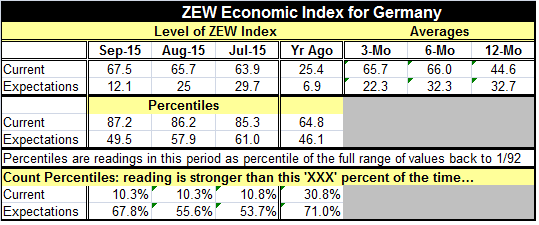
Robert Brusca
AuthorMore in Author Profile »Robert A. Brusca is Chief Economist of Fact and Opinion Economics, a consulting firm he founded in Manhattan. He has been an economist on Wall Street for over 25 years. He has visited central banking and large institutional clients in over 30 countries in his career as an economist. Mr. Brusca was a Divisional Research Chief at the Federal Reserve Bank of NY (Chief of the International Financial markets Division), a Fed Watcher at Irving Trust and Chief Economist at Nikko Securities International. He is widely quoted and appears in various media. Mr. Brusca holds an MA and Ph.D. in economics from Michigan State University and a BA in Economics from the University of Michigan. His research pursues his strong interests in non aligned policy economics as well as international economics. FAO Economics’ research targets investors to assist them in making better investment decisions in stocks, bonds and in a variety of international assets. The company does not manage money and has no conflicts in giving economic advice.



